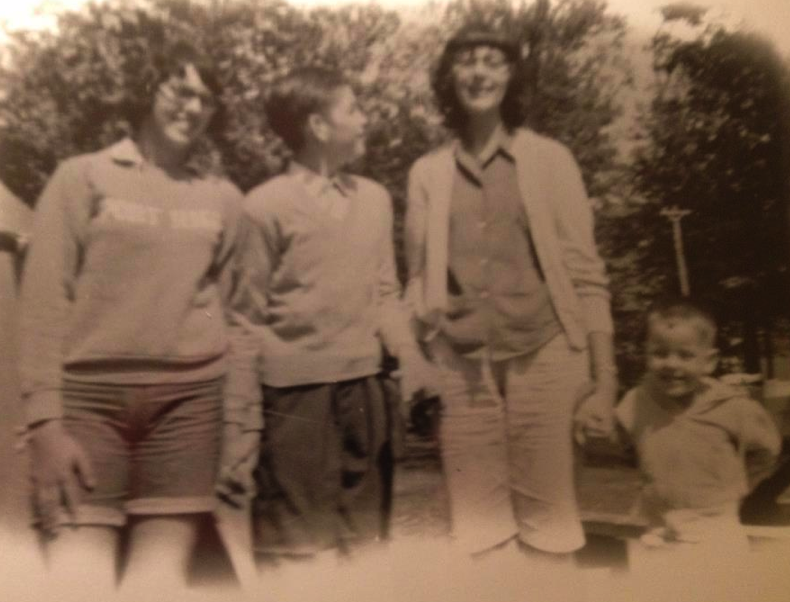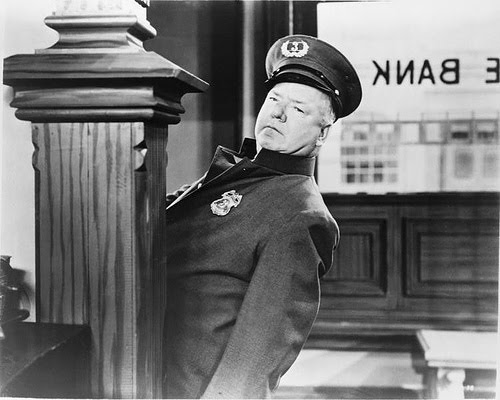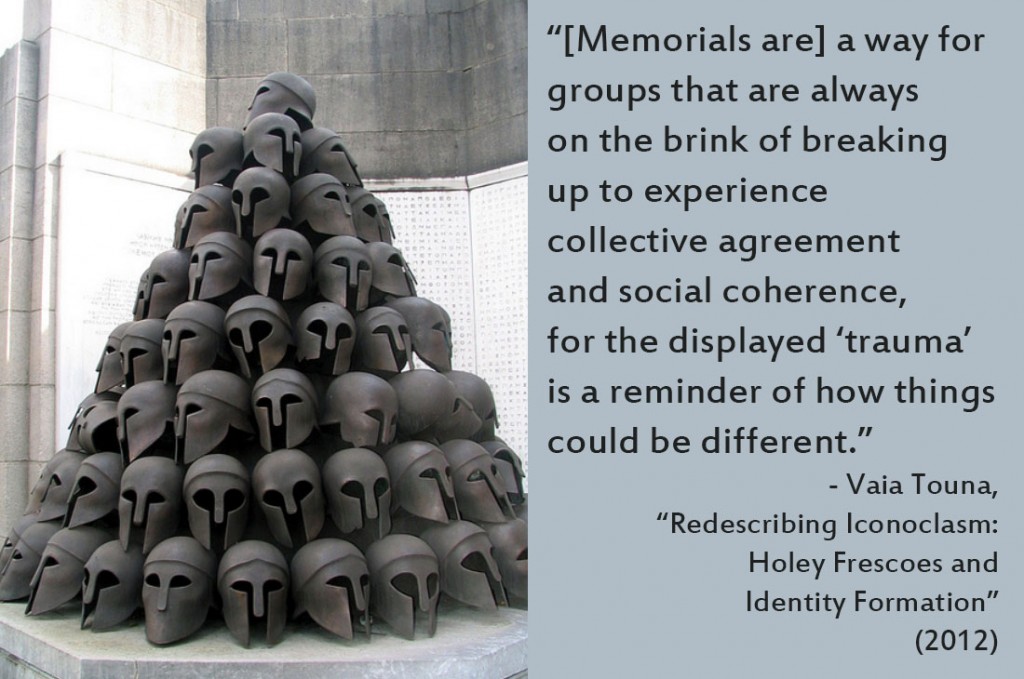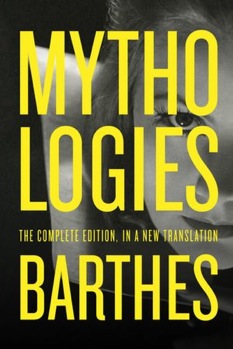
Prompted by the discussion surrounding Rachel Dolezal’s NAACP resignation, this series of posts is about how and when we take performativity seriously…, and when it bows to interests in historical or experiential specificity.
My brother, Elliot, who died in 1996, was mentally disabled. That’s him above, with my two sisters. And that’s me on the far right; he was 12 years older than me and, as a baby, had taken a particularly bad fall from his highchair; presumably, that’s what caused what, just a couple years later, became painfully apparent to my parents: he had no speech development and began suffering from repeated grand mal seizures. I won’t belabor the tragedy of his life and death, but suffice it to say that in the 1950s there was little choice but to institutionalize him, when he was a young boy, in a government-run institution. So his profound cognitive problems were quickly compounded by a number of physical problems — who knows what all abuse he was subjected to over the course of his life, but from the “cauliflower ears” and missing teeth that soon resulted, well…, it was apparent that life in the institution was horrendous. Continue reading “They’re Just Old Buildings, Right?”

 I was visiting Lehigh University not long ago and bought my wife a little something while I was there. It wasn’t elaborate, just a little necklace to surprise her when I got back. But that evening, back at my hotel, just before leaving for my final dinner, I got a phone call from home: my wife was wanting to confirm whether I’d made a purchase earlier that day, since the service our credit union uses had contacted her about an unusual purchase.
I was visiting Lehigh University not long ago and bought my wife a little something while I was there. It wasn’t elaborate, just a little necklace to surprise her when I got back. But that evening, back at my hotel, just before leaving for my final dinner, I got a phone call from home: my wife was wanting to confirm whether I’d made a purchase earlier that day, since the service our credit union uses had contacted her about an unusual purchase. Learn
Learn  There are few more relevant books for those interested in how systems of representation — in the most mundane and thus often unnoticed places — enable historical happenstance to be portrayed/perceived as timeless necessity than
There are few more relevant books for those interested in how systems of representation — in the most mundane and thus often unnoticed places — enable historical happenstance to be portrayed/perceived as timeless necessity than